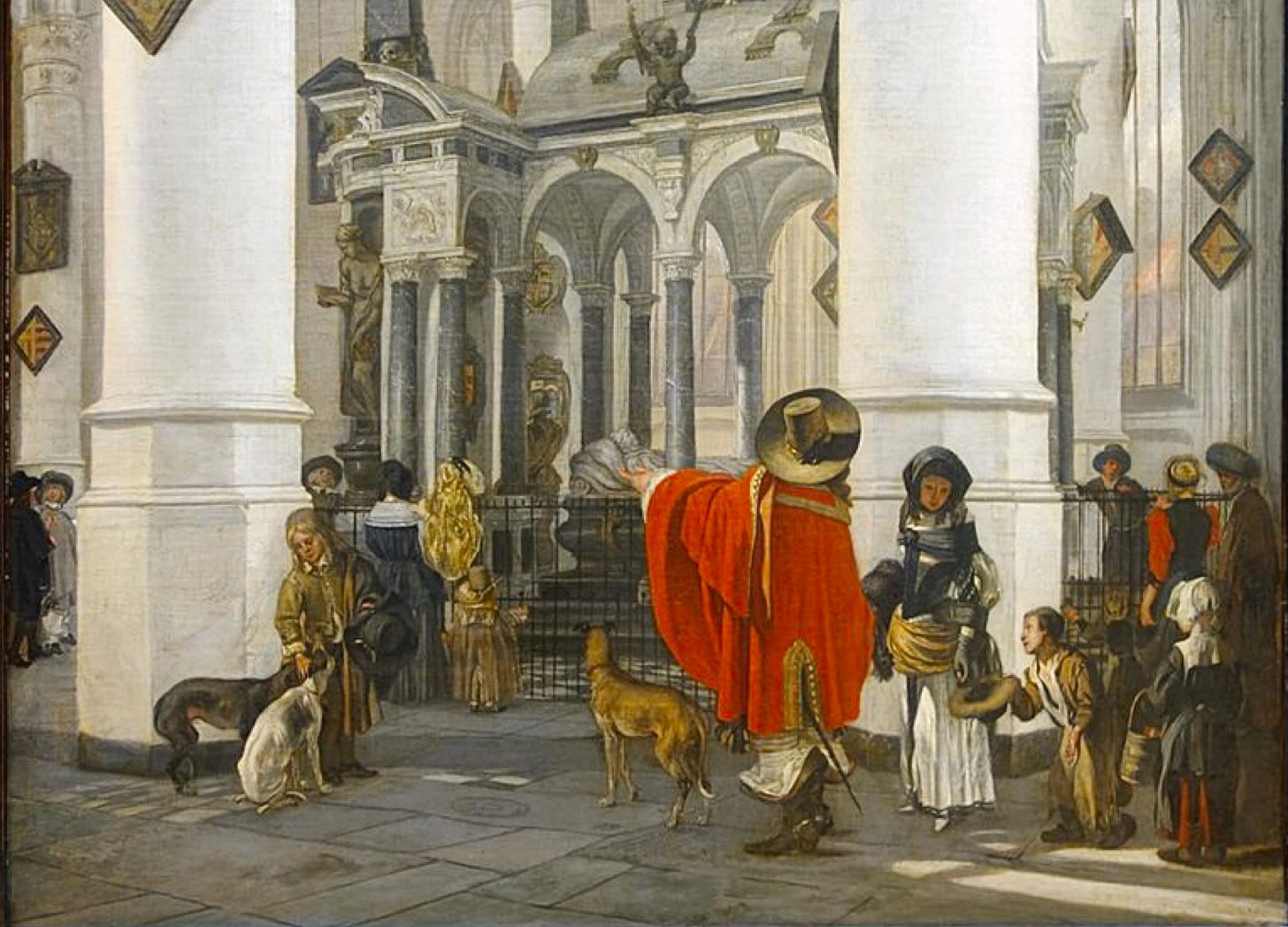Reading Forward
Will help you escape the paradox of history
In the course of setting the stage for her biography of William the Silent, Cecily Veronica Wedgwood described, in two short sentences, the paradox at the heart of all historical writing. "History is lived forwards,” she wrote, “but is written in retrospect. We know the end before we consider the beginning and we can never wholly recapture what it was like to know the beginning only.”1
Conscientious historians take pains to preserve their readers from the worst effects of this phenomenon. Thus, Dame Wedgwood begins her tale of the early days of the Dutch war of independence (1568-1648) by reminding her twentieth-century readers that the founding fathers of one of the world’s first properly modern states were not nearly as modern as one might presume. (She argues that, rather than resembling the burghers so much in evidence in the Netherlands of latter years, these aristocrats took up arms to defend “the time honored particularities” of a still somewhat medieval collection of counties, duchies, and lordships.)2
Notwithstanding these noble efforts, readers of history books (and, indeed, many authors) often fall prey to the “retrospective perspective.” Forgetting that mere mortals necessarily lack knowledge of the shape of things to come, they may even find themselves thinking “how could these yorefolk have been so stupid?” This, in turn, can lead to a degree of smugness that deprives those who engage the past with many of the benefits of such study.
Students of the past can avoid this trap by reading the writings of people who, because of the points in time at which they put their pens to paper, could not have known the outcome of the events in question. In particular, working forward through bound collections of magazines dealing with current events (or their digitized equivalents) provides many reminders that pluperfect people were working towards futures other than the past that came to pass.
C.V. Wedgwood William the Silent: William of Nassau, Prince of Orange 1533-1584 (London: Jonathan Cape, 1949), page 35
In the course of writing this paragraph, I tried mightily to provide readers with a pun that played upon the resemblance between “artist formerly known as Prince” and “estates formerly known as prince-bishoprics.” Alas, I could not do this without inflicting injuries to the facts. (Thus, for example, while the Lordship of Utrecht had, before 1528, qualified as a prince-bishopric, that of Tournai had never been ruled by a churchman invested with secular responsibilities.)




The quote reminds me of a similar one by Kierkegaard that life can only be understood backwards but must be lived forwards (or something like that).
The smug is unforgivable in history teachers.
Yet...